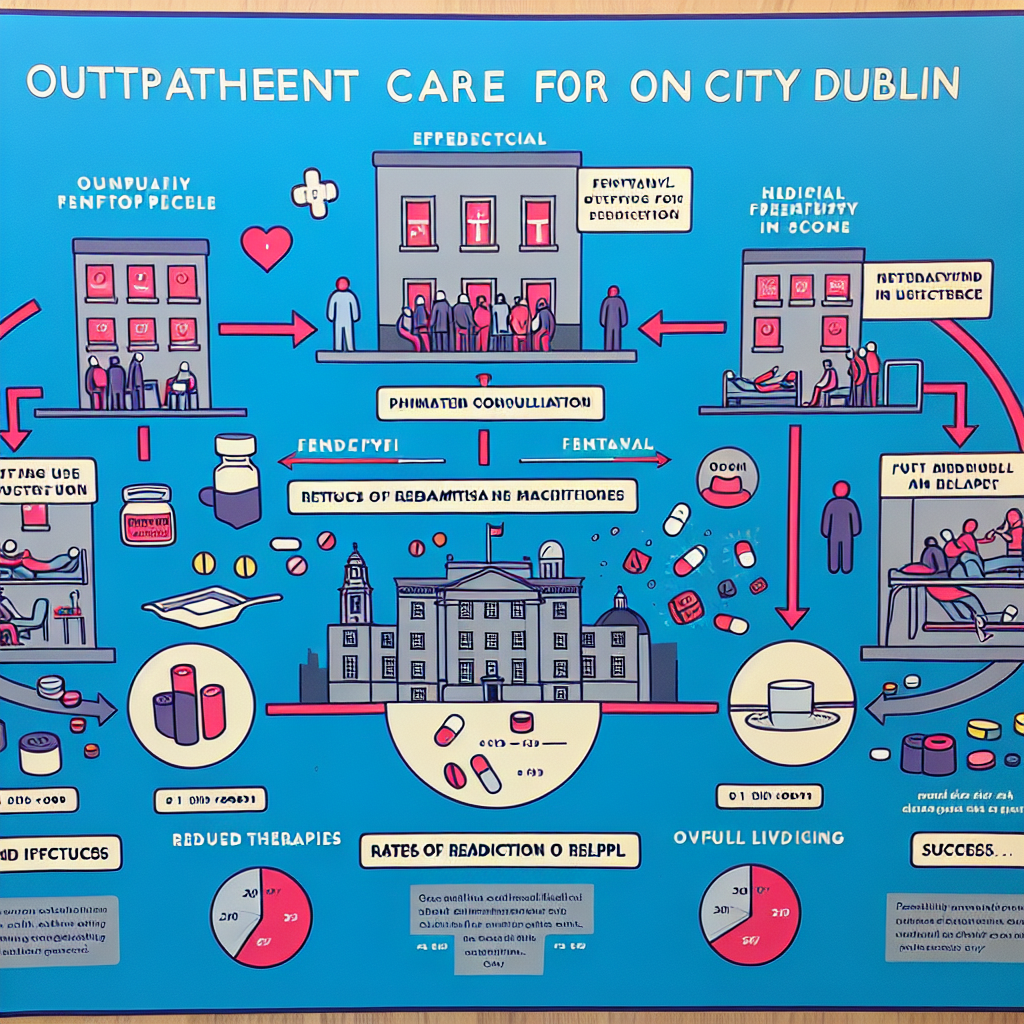-
Table of Contents
“Empower Your Journey: Stay Motivated in Fentanyl Addiction Recovery”
Introduction

Recovering from fentanyl addiction is a challenging journey that requires immense strength, resilience, and dedication. Staying motivated throughout this process is crucial for long-term success and well-being. This introduction explores essential tips for maintaining motivation during fentanyl addiction recovery, offering practical strategies to help individuals stay focused, positive, and committed to their path of healing. By understanding and implementing these tips, those in recovery can better navigate the obstacles they may face and build a fulfilling, drug-free life.
Setting Realistic Goals for Fentanyl Addiction Recovery
Setting realistic goals is a crucial aspect of fentanyl addiction recovery, as it provides a clear roadmap and a sense of direction. When embarking on this challenging journey, it is essential to establish goals that are both attainable and meaningful. This approach not only fosters a sense of accomplishment but also helps maintain motivation throughout the recovery process. To begin with, it is important to break down the overarching goal of recovery into smaller, manageable steps. By doing so, individuals can focus on achieving one milestone at a time, which can make the process feel less overwhelming. For instance, instead of aiming to be completely drug-free immediately, one might start by reducing the frequency of use or seeking professional help. Each small victory can build momentum and reinforce the belief that recovery is possible.
Moreover, setting specific and measurable goals can provide a clear sense of progress. Rather than setting vague objectives like “get better,” it is more effective to define what “better” looks like in concrete terms. This could involve setting a goal to attend a certain number of therapy sessions per week, participating in support group meetings, or engaging in physical activities that promote well-being. By tracking these activities, individuals can see tangible evidence of their efforts, which can be incredibly motivating.
In addition to setting specific goals, it is also important to ensure that these goals are realistic and achievable. Unrealistic goals can lead to frustration and a sense of failure, which can be detrimental to the recovery process. It is essential to recognize that recovery is a gradual process and that setbacks are a natural part of the journey. By setting goals that are challenging yet attainable, individuals can maintain a positive outlook and stay motivated even when faced with obstacles.
Furthermore, it is beneficial to celebrate achievements, no matter how small they may seem. Acknowledging and rewarding progress can boost self-esteem and reinforce the commitment to recovery. This could involve treating oneself to a favorite activity, spending time with loved ones, or simply taking a moment to reflect on how far one has come. Celebrating successes can serve as a powerful reminder of the progress made and the potential for continued growth.
Another key aspect of setting realistic goals is to seek support from others. Recovery can be an isolating experience, but having a strong support network can make a significant difference. This could involve reaching out to friends and family, joining support groups, or working with a therapist or counselor. These individuals can provide encouragement, accountability, and guidance, helping to keep motivation levels high.
Lastly, it is important to remain flexible and adaptable in the goal-setting process. Recovery is not a linear journey, and there may be times when goals need to be adjusted or reevaluated. Being open to change and willing to modify goals as needed can help individuals stay on track and maintain a sense of purpose. By embracing a flexible mindset, individuals can navigate the ups and downs of recovery with resilience and determination.
In conclusion, setting realistic goals is a vital component of fentanyl addiction recovery. By breaking down the recovery process into manageable steps, setting specific and achievable objectives, celebrating progress, seeking support, and remaining adaptable, individuals can stay motivated and committed to their journey. Recovery is a challenging path, but with the right goals and a positive mindset, it is possible to overcome addiction and build a healthier, more fulfilling life.
Building a Support Network for Lasting Motivation
Building a support network is crucial for anyone in fentanyl addiction recovery, as it provides the foundation for lasting motivation. The journey to sobriety is often fraught with challenges, and having a reliable support system can make all the difference. One of the first steps in building this network is to identify the people who genuinely care about your well-being. These individuals can be family members, close friends, or even colleagues who have shown consistent support. By surrounding yourself with positive influences, you create an environment that fosters encouragement and accountability.
In addition to personal relationships, joining support groups can be incredibly beneficial. These groups offer a sense of community and understanding that is often hard to find elsewhere. Being among people who are going through similar experiences can provide a unique form of motivation. Sharing your struggles and successes with others who understand your journey can be both comforting and empowering. Moreover, hearing about the progress of others can serve as a powerful reminder that recovery is possible, reinforcing your own commitment to staying clean.
Professional help is another critical component of a robust support network. Therapists, counselors, and medical professionals can offer specialized guidance and treatment plans tailored to your specific needs. Regular sessions with a therapist can help you work through underlying issues that may have contributed to your addiction. Additionally, medical professionals can monitor your physical health, ensuring that you are on the right track. Combining professional help with personal support creates a comprehensive approach to recovery, addressing both the emotional and physical aspects of addiction.
While building a support network, it is essential to set clear boundaries. Not everyone in your life may be conducive to your recovery, and it is crucial to recognize and distance yourself from negative influences. This might mean limiting contact with individuals who are still using substances or who do not respect your commitment to sobriety. By setting these boundaries, you protect your mental and emotional well-being, making it easier to stay motivated.
Another effective strategy for maintaining motivation is to engage in activities that promote a healthy lifestyle. Exercise, for instance, can be a powerful tool in your recovery arsenal. Physical activity releases endorphins, which can improve your mood and reduce stress. Whether it’s a daily walk, a gym session, or a yoga class, incorporating exercise into your routine can provide a natural boost to your motivation. Additionally, hobbies and interests that you may have neglected during your addiction can be revisited. Engaging in activities that bring you joy and fulfillment can serve as a reminder of the positive aspects of a sober life.
Furthermore, setting achievable goals can help maintain your motivation. These goals can be as simple as attending a certain number of support group meetings each week or as ambitious as pursuing a new career. The key is to set realistic, attainable objectives that give you a sense of accomplishment. Celebrating these small victories can provide the motivation needed to tackle larger challenges.
Lastly, never underestimate the power of self-compassion. Recovery is a long and often arduous journey, and setbacks are a natural part of the process. Instead of being overly critical of yourself during these times, practice self-compassion. Acknowledge your efforts and remind yourself that every step forward, no matter how small, is progress. By treating yourself with kindness and understanding, you create a positive internal environment that supports lasting motivation.
In conclusion, building a support network is a multifaceted endeavor that involves personal relationships, professional help, and self-care strategies. By surrounding yourself with positive influences, setting clear boundaries, engaging in healthy activities, setting achievable goals, and practicing self-compassion, you create a strong foundation for lasting motivation in your fentanyl addiction recovery journey.
Incorporating Mindfulness Practices in Recovery
Incorporating mindfulness practices into fentanyl addiction recovery can be a transformative experience, offering a pathway to greater self-awareness, emotional regulation, and overall well-being. Mindfulness, the practice of being present and fully engaged in the moment, can serve as a powerful tool in the recovery process. By focusing on the present, individuals can better manage cravings, reduce stress, and build resilience against relapse. To begin with, it is essential to understand that mindfulness is not about eliminating thoughts or feelings but rather about observing them without judgment. This non-judgmental awareness can help individuals in recovery recognize triggers and patterns of behavior that may lead to relapse. For instance, when a craving arises, instead of reacting impulsively, one can acknowledge the craving, understand its source, and choose a healthier response. This practice can be particularly beneficial in managing the intense cravings associated with fentanyl addiction.
Moreover, incorporating mindfulness into daily routines can significantly enhance the recovery journey. Simple practices such as mindful breathing, body scans, and meditation can be integrated into one’s day. Mindful breathing, for example, involves taking slow, deep breaths and focusing on the sensation of the breath entering and leaving the body. This practice can help calm the mind and reduce anxiety, making it easier to cope with the challenges of recovery. Similarly, body scans, which involve paying attention to different parts of the body and noticing any sensations without judgment, can help individuals become more attuned to their physical and emotional states. Meditation, even for just a few minutes a day, can also provide a sense of peace and grounding.
In addition to these practices, mindfulness can be extended to everyday activities. Mindful eating, for instance, involves paying full attention to the experience of eating, savoring each bite, and noticing the flavors, textures, and smells of the food. This practice can help individuals develop a healthier relationship with food and reduce emotional eating, which is often a coping mechanism for those in recovery. Similarly, mindful walking, where one focuses on the sensation of each step and the environment around them, can provide a sense of connection to the present moment and reduce feelings of restlessness or agitation.
Furthermore, mindfulness can also be practiced through mindful listening and communication. In recovery, building strong, supportive relationships is crucial. By practicing mindful listening, individuals can improve their communication skills, foster deeper connections, and create a supportive network. This involves fully focusing on the speaker, without interrupting or planning a response, and being present in the conversation. This practice not only enhances relationships but also helps individuals feel heard and understood, which is vital for emotional healing.
It is also important to recognize that mindfulness is a skill that takes time and practice to develop. It is normal to encounter challenges and distractions along the way. However, with consistent practice, mindfulness can become a natural part of daily life, providing a solid foundation for long-term recovery. Support groups, therapy, and mindfulness-based recovery programs can offer additional guidance and encouragement.
In conclusion, incorporating mindfulness practices into fentanyl addiction recovery can provide numerous benefits, from managing cravings and reducing stress to building stronger relationships and enhancing overall well-being. By embracing mindfulness, individuals can cultivate a deeper sense of self-awareness and resilience, empowering them to navigate the challenges of recovery with greater ease and confidence.
Celebrating Small Wins to Stay Motivated
In the journey of fentanyl addiction recovery, staying motivated can often feel like an uphill battle. However, one of the most effective strategies to maintain motivation is to celebrate small wins along the way. These small victories, though they may seem insignificant in the grand scheme of things, can provide the necessary encouragement to keep moving forward. Recognizing and celebrating these achievements can help build a positive mindset, which is crucial for long-term recovery.
To begin with, it is important to set realistic and attainable goals. Breaking down the larger goal of complete recovery into smaller, manageable steps can make the process less overwhelming. For instance, instead of focusing solely on the end goal of sobriety, set daily or weekly objectives such as attending support group meetings, practicing mindfulness, or engaging in physical activities. Each time you achieve one of these smaller goals, take a moment to acknowledge your progress. This not only boosts your confidence but also reinforces the belief that recovery is possible.
Moreover, keeping a journal can be an invaluable tool in this process. Documenting your daily experiences, challenges, and triumphs allows you to reflect on how far you have come. When you look back and see the small wins accumulated over time, it can provide a powerful reminder of your resilience and determination. Additionally, writing down your thoughts and feelings can serve as an emotional outlet, helping you to process and cope with the complexities of recovery.
Another effective way to celebrate small wins is to share them with others. Whether it’s with a trusted friend, family member, or support group, sharing your achievements can create a sense of community and accountability. The positive reinforcement and encouragement from others can be incredibly motivating. Furthermore, hearing about the successes of others in similar situations can inspire you to keep pushing forward.
In addition to external support, it is equally important to practice self-compassion. Recovery is a challenging journey, and there will inevitably be setbacks along the way. Instead of being overly critical of yourself during these times, focus on the progress you have made and the small wins you have achieved. Treat yourself with the same kindness and understanding that you would offer to a loved one in a similar situation. This shift in perspective can help you maintain a positive outlook and stay motivated.
Incorporating healthy habits into your daily routine can also contribute to celebrating small wins. Engaging in activities that promote physical and mental well-being, such as exercise, meditation, or creative pursuits, can provide a sense of accomplishment and boost your overall mood. Each time you complete a workout, finish a meditation session, or create something new, take a moment to recognize and celebrate that achievement. These small acts of self-care can accumulate over time, leading to significant improvements in your overall well-being.
Lastly, it is important to remember that recovery is a personal journey, and what works for one person may not work for another. Be patient with yourself and open to trying different strategies to find what best supports your motivation. Celebrating small wins is not about minimizing the challenges of recovery but rather about acknowledging the progress made along the way. By focusing on these incremental achievements, you can build a foundation of positivity and resilience that will support you throughout your recovery journey.
Q&A
1. **Question:** What is one effective strategy for maintaining motivation during fentanyl addiction recovery?
**Answer:** Setting small, achievable goals can help maintain motivation by providing a sense of accomplishment and progress.
2. **Question:** How can support systems aid in staying motivated during recovery?
**Answer:** Engaging with support groups, friends, and family can provide emotional support, encouragement, and accountability, which are crucial for staying motivated.
3. **Question:** Why is it important to celebrate milestones in fentanyl addiction recovery?
**Answer:** Celebrating milestones reinforces positive behavior, boosts self-esteem, and provides a sense of achievement, which can enhance motivation.
4. **Question:** How can mindfulness and self-care practices contribute to motivation in recovery?
**Answer:** Mindfulness and self-care practices help manage stress, improve mental health, and maintain a positive outlook, which are essential for staying motivated in recovery.
Conclusion
Staying motivated in fentanyl addiction recovery requires a multifaceted approach that includes setting realistic goals, seeking support from loved ones and professionals, maintaining a healthy lifestyle, and celebrating small victories. Engaging in therapy, joining support groups, and finding new hobbies can also provide a sense of purpose and fulfillment. Consistent self-reflection and mindfulness practices can help individuals stay focused on their recovery journey. Ultimately, a combination of internal determination and external support systems is crucial for sustaining long-term motivation and achieving lasting recovery.



